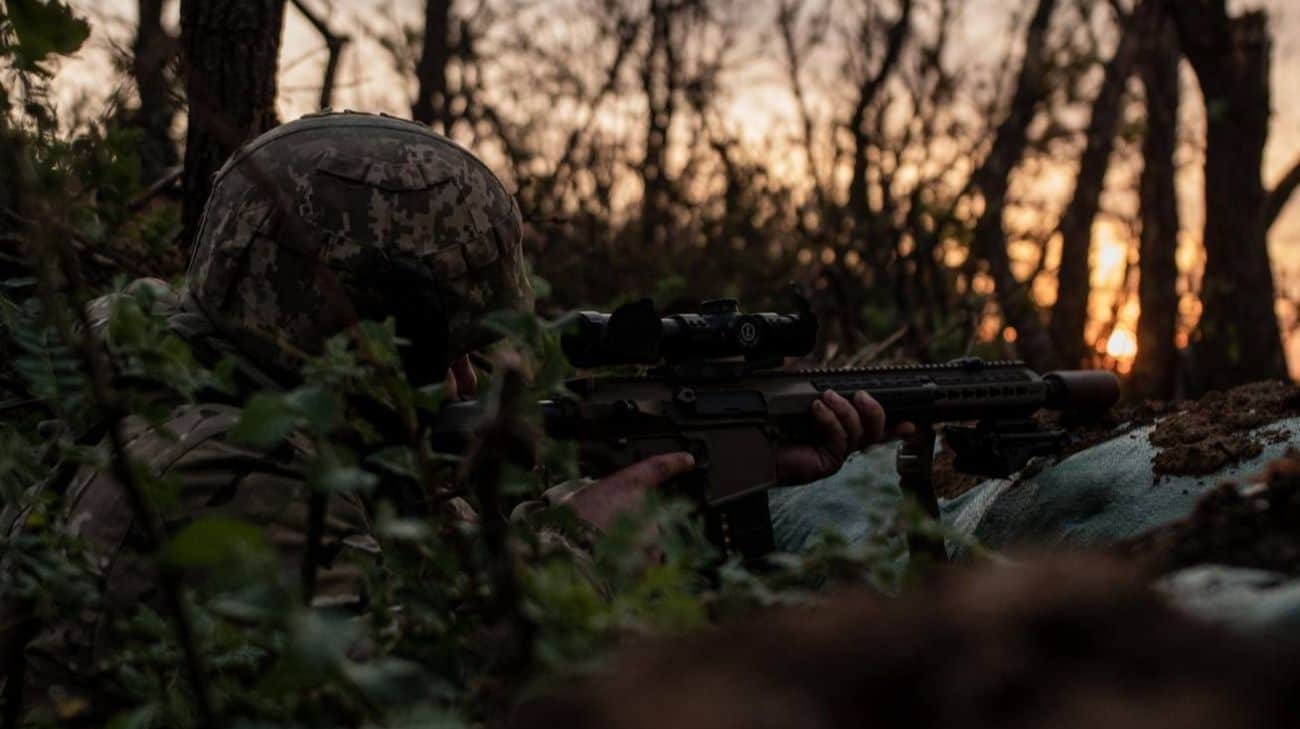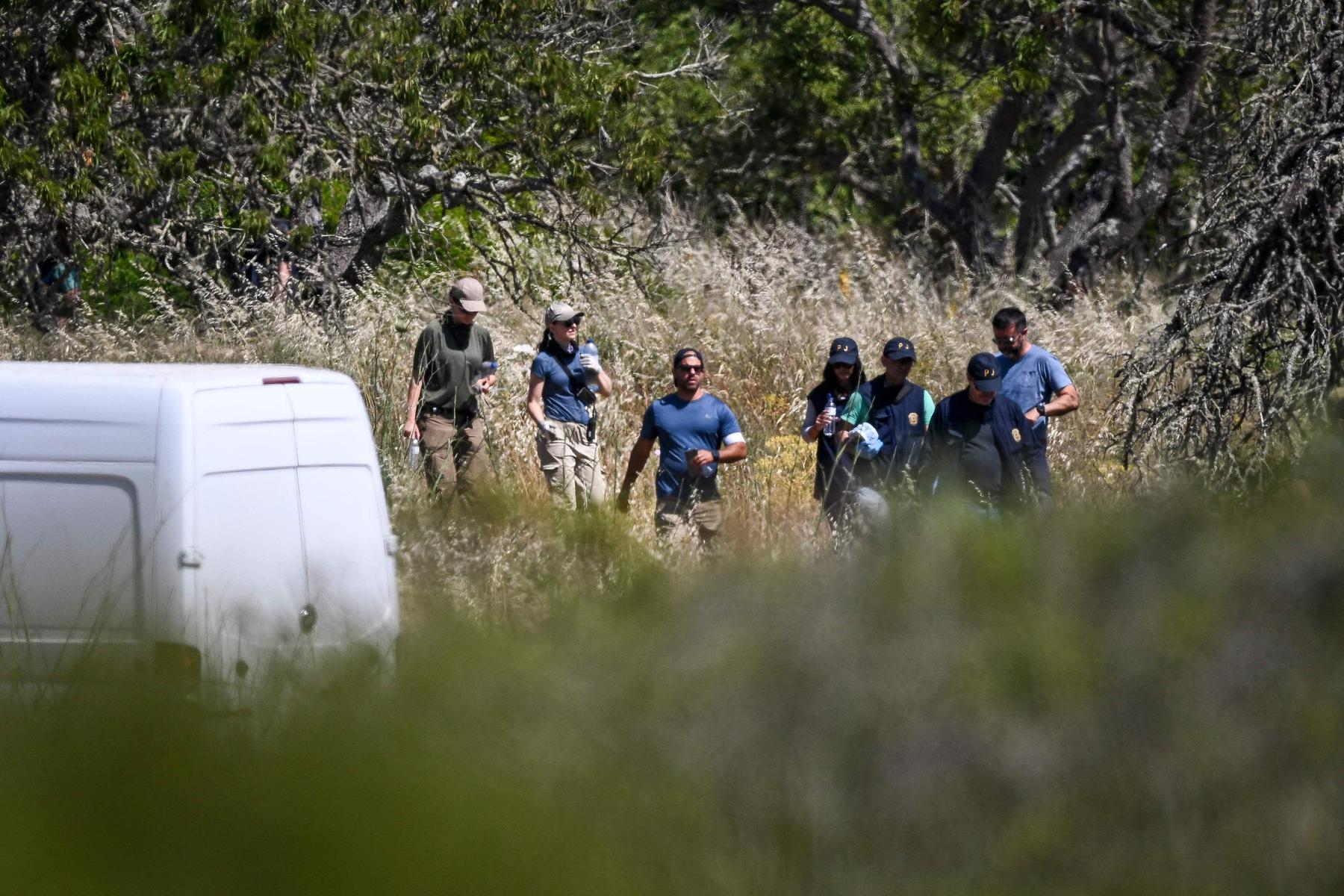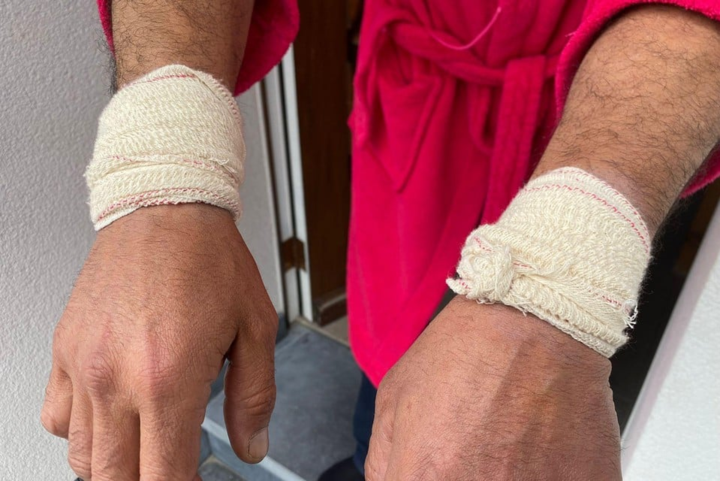Not a telephone on exercise for a few weeks? It doesn’t interest these aspiring soldiers, the young people want to defend the country
/s3/static.nrc.nl/images/gn4/stripped/data130206706-49aa22.jpg|https://images.nrc.nl/crW5t2W7KTka6SoRaJcznFvO2XA=/1920x/filters:no_upscale()/s3/static.nrc.nl/images/gn4/stripped/data130206706-49aa22.jpg|https://images.nrc.nl/5BK86j6vgnz1L5lDdX8H1n56PDc=/5760x/filters:no_upscale()/s3/static.nrc.nl/images/gn4/stripped/data130206706-49aa22.jpg)
‘Bivouac, you will do a lot. Overnight with minus 25 degrees Celsius and without electricity, that is no fun, « Air Force Underofficier Nelleke (for safety reasons without a last name) tells a dozen young people. They are in a gray room at Eindhoven Airport – one of the many places where Defense Youth Voorlicht about following a militar education. « Pffff » comes from a father.
With increasing regularity, reports about Russian ships appear for the North Sea coast and submarines that sail past critical submarine infrastructure. The pressure also increases in the air. « In the first months of 2025, Dutch combat aircraft had to play 35 times against Russian aircraft that tested the NATO air space, » Nelleke explains. « Normally we do that about twenty times in a whole year. »
The military developments force the armed forces to be the greatest staff growth since the Cold War. Even before 2030, the Ministry of Defense has to expand from around 75,000 to at least 100,000 soldiers. In crisis, there is even a doubling to 200,000.
Supporting and technical functions in particular, such as logistics, care and IT, must grow. They are roles that appeal to the imagination less than driving a ship or a fighter plane.
No telephone policy
Unlike their parents, the young people do not give a kik at Nellekes about the physical hardships. Even if she talks about the no telephone policy that sometimes applies whole weeks on exercise. Until it is about air vehicles. « Do I have to register with the Navy or the Air Force if I want to fly in an NH90 helicopter (a combat device for at sea)? » Thijmen Lucassen (16) asks. « Can I better follow the direction of martial sciences or the direction of military systems and technology at the military academy if I want to become a pilot? » Asks for another.
Read also
Extra combat units for the army to meet NATO standard: ‘Greatest growth since Cold War’
« Every year about three hundred people register to become a kite, » says Nelleke the teenagers. « But only one of them becomes that too. » The room makes a collective sigh, here and there a disappointed face can be seen. On the screen, images of eye and hearing tests appear, accompanied by heroic film music. And then a laundry list with spicy thresholds: you have to convince three senior officers that your life vision is public, scoring high on an IQ test and getting an airplane under control without earlier experience-including loopings.
“First we want people the funnel (from registering) withdrawing), says Henk. He is Lieutenant Colonel of the Marines and head of the recruitment department. That starts with an image that appeals: adventure, comradeship, meaning something for your country. « We notice that of all tasks that defense also extinguishes forest bands and coronavaccins-says the defense. During her presentation she points the young people to a map of the Netherlands. « Here in Volkel there are combat aircraft, » she says, followed by a video of one Quick Reaction Alert-Mission: a fighter jet who rises after an unknown aircraft has flown into Dutch airspace.
/s3/static.nrc.nl/images/gn4/stripped/data130206756-1b4e38.jpg|https://images.nrc.nl/2WGXDlrEmrN67SbA6I4fYaF47L4=/1920x/filters:no_upscale()/s3/static.nrc.nl/images/gn4/stripped/data130206756-1b4e38.jpg|https://images.nrc.nl/1MHX1GNy-0zkqm31cFiT3THw0Rc=/5760x/filters:no_upscale()/s3/static.nrc.nl/images/gn4/stripped/data130206756-1b4e38.jpg)
/s3/static.nrc.nl/images/gn4/stripped/data130206766-fe3fec.jpg|https://images.nrc.nl/rEepvjSNDKx4uB2pDg3BYfX_sGA=/1920x/filters:no_upscale()/s3/static.nrc.nl/images/gn4/stripped/data130206766-fe3fec.jpg|https://images.nrc.nl/bCugKwm5fidNvLyxZngdER8sqwY=/5760x/filters:no_upscale()/s3/static.nrc.nl/images/gn4/stripped/data130206766-fe3fec.jpg)
Collect and supervise
Since a year, recruiters are also thinking about suitable alternatives for the people who do not get through the selection. In the future they also want to work more with artificial intelligence. AI must link someone’s skills and preferences to functions that he or she has not yet thought of. For example, an aspiring pilot is told that his profile also fits well with the training as a air combat leader or system technician.
Moreover, it appears that the year introduced in 2021 is effective to bind young people to Defense. Participants will participate in different departments for a year. It is precisely because young people get the chance to experience different roles in practice, they regularly discover that their interests are otherwise than in the cockpit or on the Scheepsbrug. And strikingly often they then stay hanging for vocational training.
« The number of registrations is growing. Last year it was around 20,000 in total. A fifth of those applicants actually started training, » explains Lieutenant Colonel Henk. A large part wants to go for the ‘cool jobs’, such as marine or fighter pilot. And it is precisely those training courses that are very selective and do not have any large shortages. « As soon as they turn out to be out of reach, many drop out. »
« Instead of having them out, we have to take care of them and guide them to another path within Defense, » he says. That starts with puncturing the Tom Cruise image. « To make an F-35 fly, you need a logistics person just as hard as a kite. Without fuel, the box will not go up. » So together heroism: « Our slogan is: » One team, one task. » You do it together. ”
Read also
Are reservists going to save the armed forces? Then employers must cooperate. And the recruitment campaigns
/s3/static.nrc.nl/images/gn4/stripped/data130206826-07e3c3.jpg|https://images.nrc.nl/Nil5dmG_SSw5WFQj2r8tkVJi8r8=/1920x/filters:no_upscale()/s3/static.nrc.nl/images/gn4/stripped/data130206826-07e3c3.jpg|https://images.nrc.nl/wAowBWB82df6EdtdsJNwOWYabYQ=/5760x/filters:no_upscale()/s3/static.nrc.nl/images/gn4/stripped/data130206826-07e3c3.jpg)

:format(webp)/s3/static.nrc.nl/wp-content/uploads/2025/03/27200737/web-2703BINdefensB.jpg)
:format(webp)/s3/static.nrc.nl/wp-content/uploads/2025/03/31091636/data129902256-7442fb.jpg)
:format(webp)/s3/static.nrc.nl/wp-content/uploads/2025/06/05221551/web-0506BIN_Jonge.jpg)
/s3/static.nrc.nl/images/gn4/data133280221-bb4cba.jpg)
:format(webp)/s3/static.nrc.nl/images/gn4/stripped/data131202714-9c8052.jpg)




